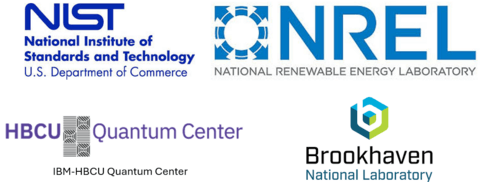Home
A Quantum Science Education and Research Program for HBCUs: Exotic Physics and Applications of Solid-State Qubits
Non-Technical part: Quantum information science and engineering (QISE) is widely recognized as a key driver for realizing game-changing scientific breakthroughs and transformative new quantum computing, sensing, and communication technologies for ensuring national security and maintaining the economic competitiveness of the U.S. It is necessary to build partnerships between academia, national laboratories, and industry in order to effectively advance the QISE forefront by engaging a diverse workforce. Historically Black Colleges and Universities (HBCUs), however, lack the needed faculty strength and laboratory infrastructure for QISE training of students. This five-year project aims to fill this critical gap by establishing an expansive QISE research and training program at Howard University (HU) in close partnership with Northeastern University, where quantum research and education programs are well-established. Collaborating national laboratories and industries are: National Institute of Standards and Technology (NIST), National Renewable Energy Laboratory (NREL), IBM, Quantum Design, and Qnami. The scientific focus of the project is on modeling, discovery, understanding, and applications of quantum bits or qubits, which are the key components of the QISE ecosystem, much as the classical bits underlie the modern electronics revolution. This effort will also provide a roadmap for other HBCUs and Minority Serving Institutions (MSIs) throughout the U.S. to propel themselves toward leadership roles in QISE.
Technical part: This project is pursuing a vibrant QISE research and training program at HU in close partnership with Northeastern University and collaborations involving national laboratories (NIST and NREL), and industry (IBM, Quantum Design, and Qnami). The research and training activities are centered around three highly interlinked thrusts. (1) Investigation of hybrid structures of qubits interacting with electromagnetic fields, spins, ions, quantum dots, and other systems to gain a deeper understanding and advancement of quantum sensing and transduction technologies. (2) Rational design and in-depth evaluation of defect qubits in two-dimensional host materials, including effects of spin-orbit couplings, phonons, nuclear spins, and temperature. And (3), low-temperature nanoscale mapping and exploration of quantum systems using a commercial cryogenic scanning diamond-Nitrogen-vacancy magnetometer (SNVM) - the first of its kind at an MSI in the US—with unprecedented resolution and sensitivity for unraveling the fundamentals of exotic charge and spin phenomena and achieving improved qubit designs. Undergraduate, graduate, and postdoctoral students and faculty at HU are participating vigorously in experimental and theoretical research and training activities, cutting across all three thrusts in the project. QISE workforce development efforts include: workshops involving HU students and faculty to ignite awareness about various QISE training programs at the national labs and R1 universities; opportunities to collaborate with national and industry partners, including access to IBM Cloud for quantum computing and Northeastern University’s integrated EQUAL platform for hands-on training in growing, fabricating, and characterizing qubit materials and devices; and, development of new QISE courses to support a professional QISE master’s degree program at HU. Outreach activities include the creation of a web portal to highlight recent QISE discoveries and video recordings of monthly project seminars and e-summer schools to educate and engage the public in QISE topics.

